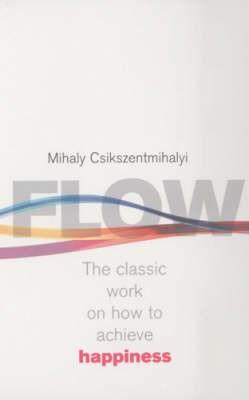Review of 'Flow' on 'Goodreads'
4 stars
This book has some valuable insights about what makes a fulfilling and enjoyable life. Namely, that it is the meaningful challenge that people truly enjoy.
Some of the insights, for example the focus on the task at hand that leads to temporarily losing a consciousness of the self, resonate well with me. It meshes well with some of my own experience (drawing from life can be in many ways a meditative experience, as it requires complete focus on the object and leaves no processing power to entertain any stray thoughts) and with the research on attention I am familiar with. Some studies do show that brain has a limited processing power, so to say, so people engrossed in complex task might, literally, be too busy to be in pain.
However, the book does have weak points. One of them is the author's tendency to offer sweeping, stereotypical and often inaccurate …
This book has some valuable insights about what makes a fulfilling and enjoyable life. Namely, that it is the meaningful challenge that people truly enjoy.
Some of the insights, for example the focus on the task at hand that leads to temporarily losing a consciousness of the self, resonate well with me. It meshes well with some of my own experience (drawing from life can be in many ways a meditative experience, as it requires complete focus on the object and leaves no processing power to entertain any stray thoughts) and with the research on attention I am familiar with. Some studies do show that brain has a limited processing power, so to say, so people engrossed in complex task might, literally, be too busy to be in pain.
However, the book does have weak points. One of them is the author's tendency to offer sweeping, stereotypical and often inaccurate generalizations of times and cultures - both the past and the current. Which could have been overlooked if he did not base his arguments on such generalizations.
Another weak point is that the author has a clear preference for how people ought to spend their time, which, in my opinion, leads to a certain bias that does not allow him to notice the possibilities of the "flow" experiences available in the activities he disdains. For example, throughout the book he engages in a veritable crusade against television and seems to consider watching TV a completely passive entertainment, which is not how people actually engage with the shows, especially today. Today, almost everybody is not just a passive consumer but a critic, and the show itself is often used - quite consciously - as a fodder for interaction, fuel for a writing, a thing to take apart. But his clear disdain does not allow him to even consider such a possibility.

